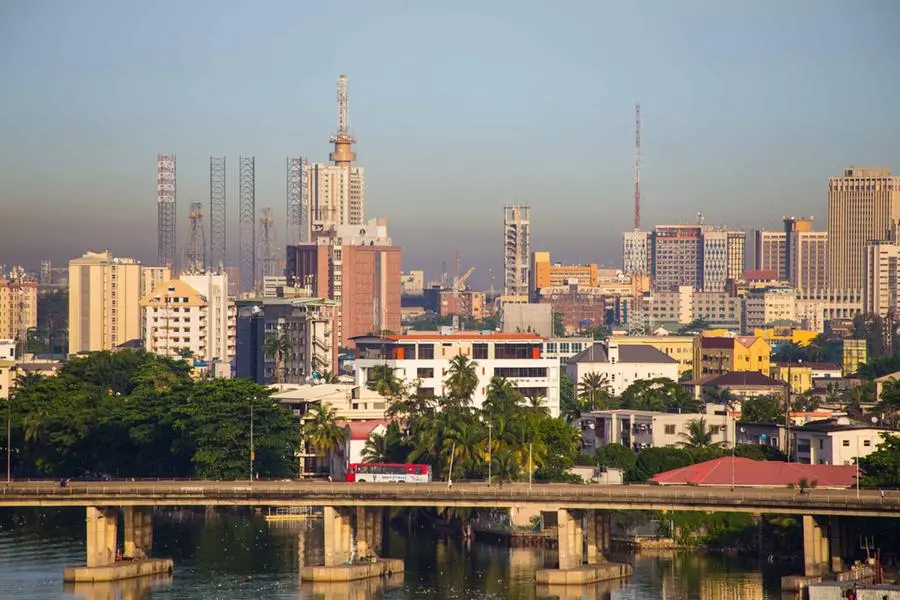PHOTO
As part of ways to enhance home ownership among Nigerians, one of affordable housing advocates in the sector, Mr. John Olubayo, has called for a solid and inclusive housing programme with an ambitious target that embraces all the relevant stakeholders, strong political support, adequate financial support and strategies to combat corruption.
According to him, the programme must hinge on Nigeria being experiencing an economic revival that provides it with the funds needed to finance a comprehensive housing programme and helps lift many out of poverty.
Citing Indonesia example, Olubayo said that “One Million House Program” was launched by President Joko Widodo (Jokowi) in 2015, to address housing shortages, especially for low-income citizens.
Related PostsPolice arrest 38 suspected criminals in NigerHow suspected car snatching syndicate members met in prison, formed gang after regaining freedomSanwo-Olu, others to attend ‘4th Lagos Door of Return’As of December 31, 2021, Olubayo said the programme had successfully built 1,105,707 housing units across Indonesia.
“To realise this ambitious initiative, the Indonesian government allocated Rp 10 trillion (equivalent to approximately $782 million) from the 2015 revised state budget. This budget not only facilitated the construction of houses but also supported the Housing Loan Liquidity Facility (FLPP), which provides government-backed mortgages to assist low-income individuals in acquiring housing,” he said.
Proposing a housing programme for Nigeria by borrowing from the best ideas worldwide, including the one million homes programme in Indonesia, Olubayo, on the social media platform of Festus Adebayo-led Housing Development Advocacy Group, urged Nigerian government to set a clear and realistic target for the number of housing units to be built annually, taking into account the current housing deficit, the population growth, the urbanisation rate and the affordability of the potential beneficiaries.
“For example, if the current housing deficit is estimated at 17 million unit, and the population growth rate is 2.6 percent, then the government should aim to build at least 1.5 million units per year for the next 10 years to close the gap and meet the future demand,” he said
Besides, he said that government should adopt a holistic and inclusive approach to housing development, involving all stakeholders, such as the public sector, the private sector, the civil society and the communities.
Olubayo urged government to provide enabling policies, regulations, incentives and infrastructure to facilitate and support the housing delivery by various actors.
“The government should also ensure that the housing programme is aligned with the national development goals and the UN Sustainable Development Goal 11, which aims to make cities and human settlements inclusive, safe, resilient, and sustainable.
“The government should learn from the successful experience of Indonesia’s One million homes program, which was launched in 2015 as a joint movement by all housing stakeholders, including the central government, housing developers, banks, private companies, and the public.
“The programme managed to build more than one million units annually since 2018, with 70 percent of them allocated for low-income households (MBR) and 30 percent for non-MBR households.
The programme also contributed to fixed capital formation, employment generation, and poverty reduction in Indonesia,” the affordable housing expert said.
According to him, government should also adopt some of the best practices from other countries that have implemented successful housing programmes, such as Singapore, South Korea, China, India, Brazil and Morocco.
Some of these practices, he said included the provision of subsidised loans, grants, tax breaks, or land allocation for low-income households or developers who build affordable housing units.
He said the practices also encompassed establishing a national housing fund or agency that can mobilise resources from various sources, such as government budget, pension funds, bonds or international donors; creating a national housing database or registry that can monitor the supply and demand of housing units, as well as identify the eligible beneficiaries and allocate them accordingly; and promoting innovative and cost-effective building technologies and materials that can reduce construction time and cost, improve quality and durability and enhance environmental sustainability.
“Encouraging community participation and empowerment in housing development, such as through cooperatives, self-help groups, or social housing organisations; and integrating social services and amenities into housing projects, such as health care, education, transportation, water supply, sanitation, waste management, and security,” he said.
The government, according to him, should also address some of the specific challenges and constraints that hinder the housing development in Nigeria, such as the lack of adequate and reliable data on the housing sector, housing stock, demand, supply, prices, quality, ownership and tenure, among others.
READ ALSO FROM NIGERIAN TRIBUNE
INEC worried over security situation in Imo, Bayelsa, KogiIsraeli defense minister orders ‘complete siege’ of GazaDrambi Vandi to die by hanging for killing Bolanle RaheemSunday Igboho regains freedom after two yearsLeast paid worker in Nigeria should get 200 dollars monthly – AjaeroPRESSTIME PODCAST: The Graphics Designer EpisodeMONDAY LINES: The certificate elephant in AbujaCopyright © 2022 Nigerian Tribune Provided by SyndiGate Media Inc. (Syndigate.info).
by Dayo Ayeyemi





















